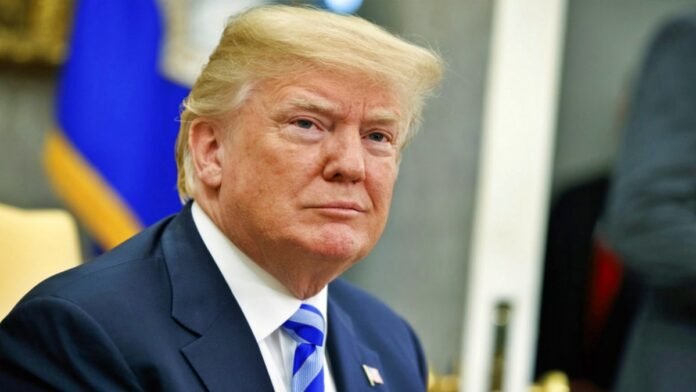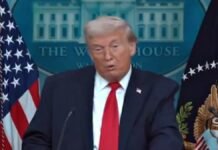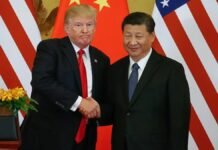
New Delhi: Former President Donald Trump is facing a historic criminal trial over his alleged role in plotting to overturn his 2020 election defeat, but he is trying to avoid it by asking the Supreme Court to intervene on his behalf.
Trump claims that he is immune from prosecution as a former president and that the trial would violate the separation of powers and the dignity of the office. His lawyers filed an emergency appeal with the Supreme Court on Monday, seeking to extend the delay in the trial that was granted by a lower court.
The appeal comes just days after the Supreme Court heard oral arguments on another case involving Trump, in which he is challenging the efforts of some states to remove him from the 2024 presidential ballot because of his actions following the 2020 election. The justices seemed inclined to rule in Trump’s favor in that case, which could boost his chances of running for a second term.
However, the Supreme Court has not been so sympathetic to Trump in other legal matters that directly affect him. The court has rejected several appeals by Trump and his allies to overturn the 2020 election results or to block the release of his tax returns and other financial records to congressional investigators and prosecutors in New York.
The criminal trial that Trump is trying to avoid stems from a federal grand jury indictment that was issued in 2021, charging him with conspiracy, obstruction of justice, and incitement of insurrection. The indictment accuses Trump of orchestrating a scheme to pressure state and local officials, members of Congress, and his own vice president to overturn the election results in his favor, culminating in the violent attack on the US Capitol on January 6, 2021, by a mob of his supporters.
The trial is being overseen by US District Judge Tanya Chutkan, who has denied Trump’s immunity claims and ruled that the trial can proceed. The trial was originally scheduled to start in early March, but it was put on hold after Trump appealed to the US Court of Appeals for the District of Columbia Circuit.
The appeals court upheld Chutkan’s decision in January, rejecting Trump’s arguments that he is immune from prosecution as a former president and that the trial would interfere with his constitutional rights and duties. The court also said that the trial would not pose a threat to the presidency as an institution, noting that Trump is no longer in office and that the charges against him relate to his personal conduct, not his official acts.
The appeals court gave Trump until February 12 to ask the Supreme Court to intervene, which he did on Monday. The Supreme Court now has to decide whether to take up the case or to let the trial go ahead. The court has no fixed deadline to act, but the special counsel who is prosecuting the case, Jack Smith, has urged the court to resolve the immunity issue as soon as possible and to allow the trial to proceed without further delay.

Smith, a former federal prosecutor who was appointed by Attorney General Merrick Garland in 2021, has argued that the case is of “imperative public importance” and that the trial is necessary to uphold the rule of law and the integrity of the democratic process. Smith has also dismissed the claims of partisan bias by Trump’s lawyers, who have accused him of trying to time the trial to coincide with the 2024 election season.
The Supreme Court’s decision on the case could have significant implications for Trump’s political future and for the fate of the presidency. If the court agrees to hear the case, it could take months to issue a ruling, which could delay the trial until after the 2024 election. If the court declines to hear the case, the trial could start as early as this spring, which could expose Trump to the risk of conviction and imprisonment.
The Supreme Court’s composition could also play a role in the outcome of the case. Three of the nine justices, Amy Coney Barrett, Neil Gorsuch, and Brett Kavanaugh, were nominated by Trump when he was president and have been part of the court’s conservative majority that has issued landmark rulings on abortion, gun rights, and affirmative action. However, the court’s conservative justices have not always sided with Trump on matters concerning him personally, and some of them have expressed concerns about the scope of presidential immunity in the past.
The case is likely to test the court’s balance between protecting the presidency as an institution and holding the president accountable as an individual. It is also likely to test the court’s credibility and legitimacy in the eyes of the public, as it faces one of the most controversial and consequential cases in its history.






















































